China’s ‘involution’ could spur a post-capitalist era (Part 2)
EAI senior research fellow Lance Gore believes that China should not get stuck in capitalist or old socialist thinking and thereby miss the golden opportunity of the AI era, unseen in 10,000 years.
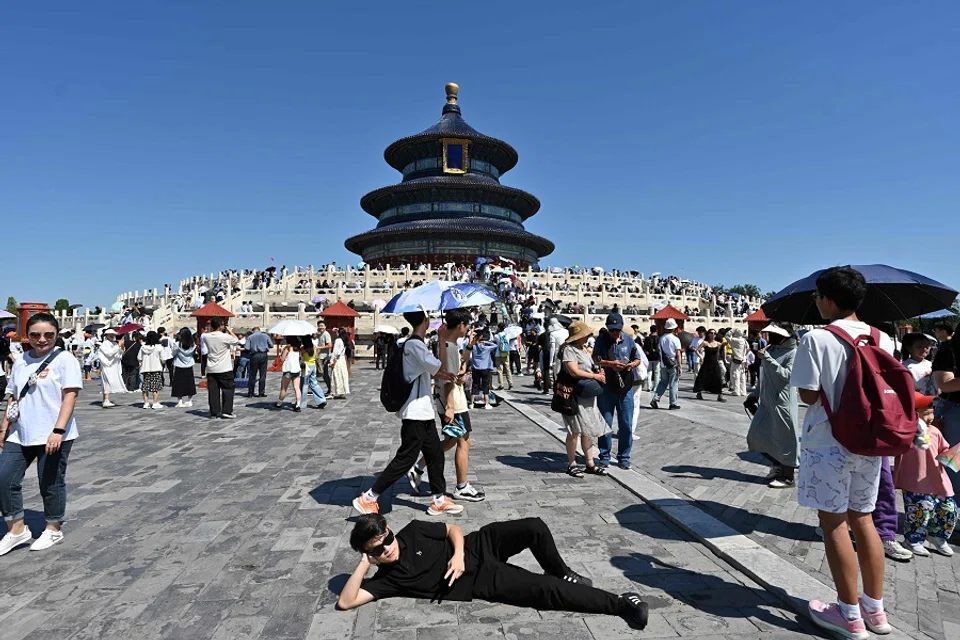
As pointed out in Part 1, involution is a characteristic of capitalism. Its brutal side has been intensively displayed in the American Gilded Age and in the writings of Charles Dickens and Friedrich Engels.
While Anglo-American capitalism today appears ruthless compared with other modes of capitalism in Europe, it is, in fact, more progressive than in the past and, in many ways, more humanised than China’s present form of capitalism.
Solving the problems of capitalism
Class struggle — rather than violent revolution — played a very significant part in achieving such progress. That was because the working class had the effective weapon of votes and the freedom to organise trade unions.
More importantly, the “progressive movements” of the early 20th century led to the passing of legislation that satisfied various demands, improving human rights, working conditions and environments, and so on. Progress in this respect is also gradually being realised in China.
However, such developments only treated the symptoms, and not the root causes. That is because the true nature of capitalism is simply suppressed, not changed. It can crop up again at any time.
In China, there are near-term and long-term solutions to involution. The near-term solutions include, as mentioned in Part 1, the Chinese Communist Party (CCP)’s plans for establishing fair competition, a unified national market, reducing local government intervention, and streamlining corporate bankruptcy and exit mechanisms. The long-term solution is to transition towards a post-capitalist model.
With regard to the near term, we shall focus on innovation and distribution for now.
... it was imperial power, the imperial court and the imperial ideology that had suppressed the creative vitality of Chinese society.
Unleashing the vigour and creativity of Chinese society
One key reason for involution is the lack of innovation. Instead of pioneering new paths, individuals and companies flock to the narrowest avenues, failing to create the ideal scenario envisioned by Premier Li Keqiang of “mass entrepreneurship and innovation”. This absence of innovation and the resulting product homogeneity lead industry players to engage in intense price wars.
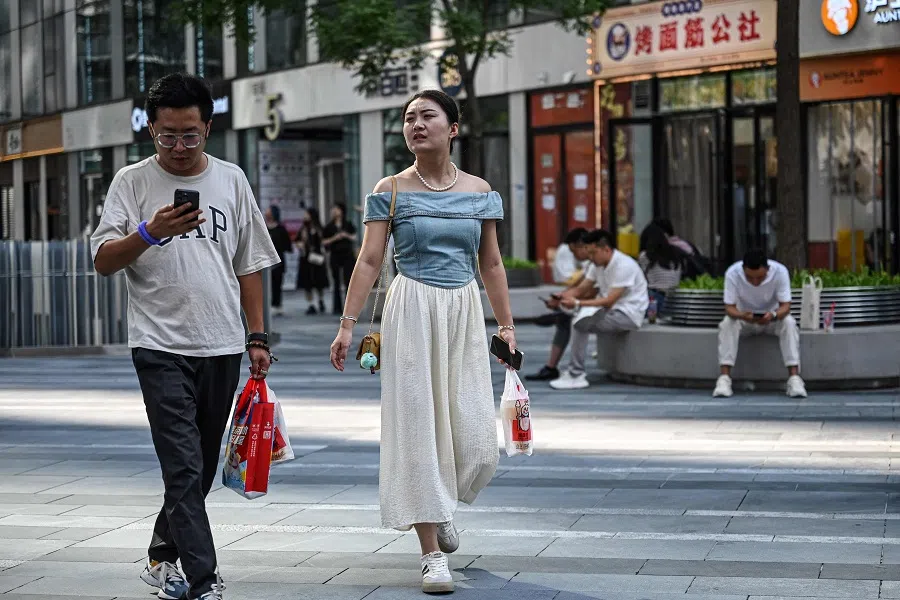
The term “involution”, originally used in Western sinology, describes a phenomenon observed in agrarian societies in China and other parts of Asia. It refers to a situation where economic progress is stifled despite extensive cultivation and the investment of substantial labour. This stagnation arises because an abundant labour force leads to increased production through intensified labour rather than through technological advancement.
While the productivity per unit of land is high, the productivity of labour is low and constantly declining, resulting in a “high-level equilibrium trap”. This is the theory used by Australian historian Mark Elvin to explain the long-term stagnation seen in Chinese history. In other words, Chinese traditional culture innately lacks the innovation gene.
Digging deeper, we can see that it was imperial power, the imperial court and the imperial ideology that had suppressed the creative vitality of Chinese society. Everything was made to conform to the rules, to keep to the old rut, so as to maintain social stability and the unshakable security of the empire. The powers that be had sacrificed the health of the nation for their own selfish interests.
Renowned historian Wang Gungwu believes that to a large extent, the ruling party plays a role similar to that of imperial power in history. However, after adding the “progressive” element, the traditional model of centralised rule is ill-fitted to the dynamic modern society.
The “whole-nation system” has been applied to key technological research and major engineering projects, and it has indeed yielded results. However, this approach, while effective, does not constitute “mass entrepreneurship and innovation”, and its impact is therefore somewhat limited.
Finding ways to stimulate and unleash society’s vigour and creativity remains an ongoing challenge.
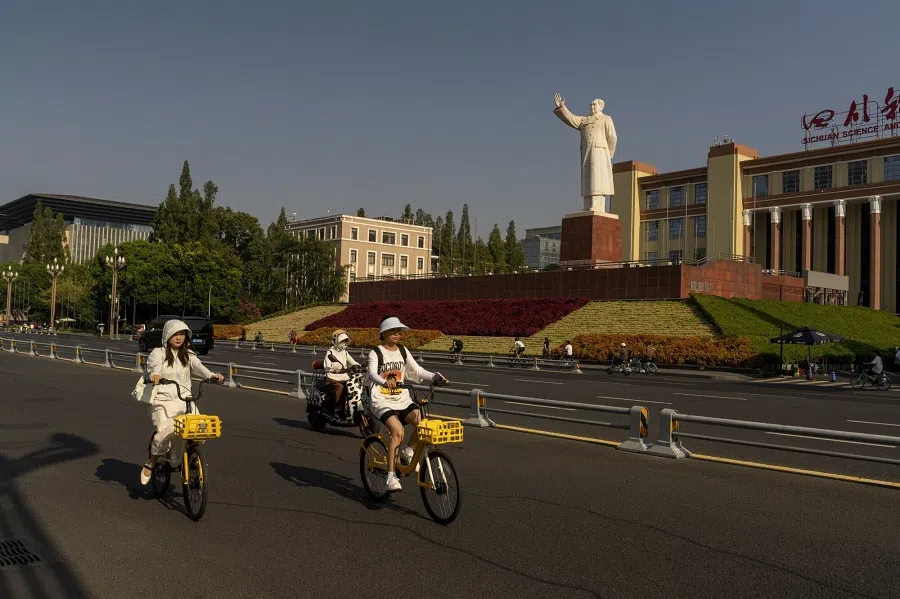
In contrast, Mao Zedong believed in the “boundless creative power” of the masses and advocated for fully unleashing the people’s spirit of pioneering creativity. Unfortunately, the system in China was not sufficiently developed to harness this initiative effectively, leading to widespread chaos. The masses’ creativity was diverted towards factional battles, identifying and persecuting reactionaries, posting “big-character posters”, and performing loyalty rituals.
Finding ways to stimulate and unleash society’s vigour and creativity remains an ongoing challenge.
Capitaism’s flawed distribution of wealth
Capitalism is very good at creating wealth but not at distributing it. Moreover, capitalism often creates wealth at the expense of the general populace, leading to significant suffering.
As the systemic mechanism of capitalism grinds on, China is likely to face the same struggles as developed capitalist countries. These include: individuals in traditionally middle-class jobs not receiving corresponding incomes or a decent standard of living, and downward social mobility significantly outpacing upward mobility, leading to a shift from an olive-shaped to a pear-shaped social structure.
By the time artificial intelligence (AI) fully replaces human labour (physical, mental and creative labour), the wealth created without labour will be concentrated in the hands of a small number of capitalists. The massive wipeout of jobs spells a troubled future for the salaried class at large.
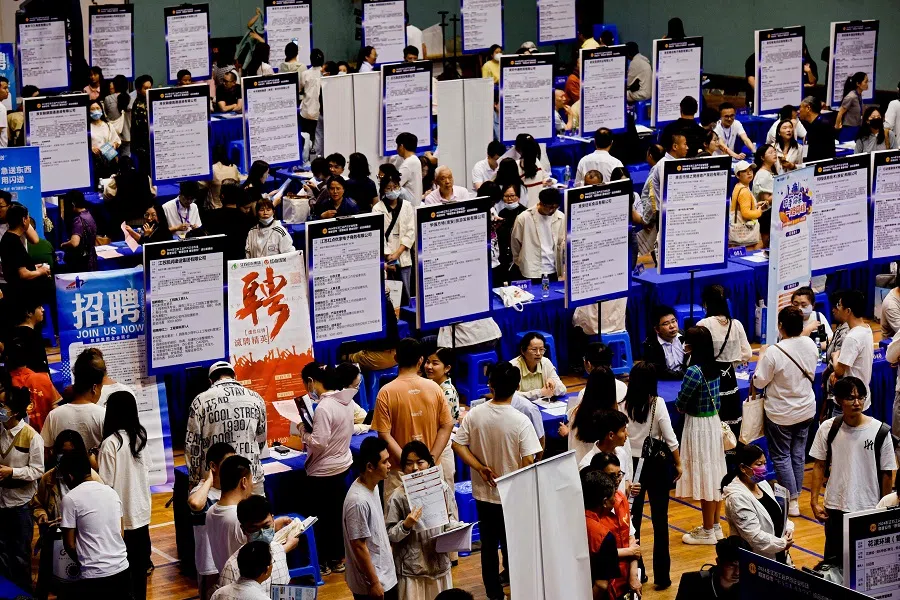
In this situation, the Marxist principle of distribution according to labour becomes ineffective. The CCP’s 20th Central Committee’s third plenary session repeats old rhetoric about “increasing the weight of labour in distribution”, which is largely empty talk.
Meanwhile, the promised increase in income for various factors — particularly intellectual capital — could lead to greater distributional “unfairness”. This unfairness, as understood in socialist terms, may nonetheless be entirely reasonable and legitimate according to capitalist principles.
In sum, the trend of wealth favouring capital over labour is irreversible. To achieve equitable distribution of benefits, we must focus on capital and abandon the old maxim that “he who does not work shall not eat”.
The appreciation of land value results from the work done by society around it — such as network effects from businesses, public transportation making the area more accessible, and nearby restaurants, cafes and beautiful natural scenery.
Ways to share benefits
Even so, there is still a place for traditional methods. For example, the secondary distribution of wealth through progressive tax rates, the tertiary distribution through charities, and the forgotten principle of land rent or land appreciation.
In the late 19th century, the American political economist Henry George proposed the idea of the land value tax, which was widely supported by economists. The appreciation of land value results from the work done by society around it — such as network effects from businesses, public transportation making the area more accessible, and nearby restaurants, cafes and beautiful natural scenery.
Since these benefits are not the work of the landowner, it is fair to share the increased value with the society that contributed to it. The “Chongqing model” once intended to implement this principle but quickly faded away for various reasons.
In addition, there are also employee-owned companies and worker co-operatives, which are already widely established in capitalist countries, as well as government legislation to protect the rights and interests of workers.

Closer to the realities of the new era is the American Equity fund proposed by OpenAi co-founder Sam Altman, which would levy a 2.5% tax on every company in the form of shares, with every citizen over 18 years of age holding an account in the fund.
A tax paid in the form of corporate shares would align incentives among companies, investors and citizens, so that all three parties can profit from corporate growth, thereby hitching people’s incomes to capital and avoiding the troubles of labour devaluation.
Once AI becomes the mainstay of production amid such a set-up, companies will grow rapidly, and so will everyone’s income.
Transitioning to post-capitalism: When AI takes over
In any case, the fundamental long-term solution is to transition to post-capitalism. And that’s where China has the potential to lead.
One should not assume that a country can be considered socialist just because of communist party leadership and public ownership. In terms of actual socialism, China is outdone by the more seasoned capitalist countries in the West. Nevertheless, China has the right conditions to be the first to transition to post-capitalism.
Beyond the challenges of wealth distribution, the AI revolution presents a major issue: a large, idle labour force. The problem of widespread unemployment and inactivity could become significant.
Transitioning to a post-capitalist society will require a reorganisation into new forms, and the CCP, with its strong organisational capabilities, is well positioned for this task. In such a society, both market and government roles would be significantly diminished, allowing society itself to take centre stage — hence, the term neo-socialism for post-capitalism.
This involves gradually integrating socialist elements into capitalism, addressing its shortcomings, and progressively achieving a full transformation.
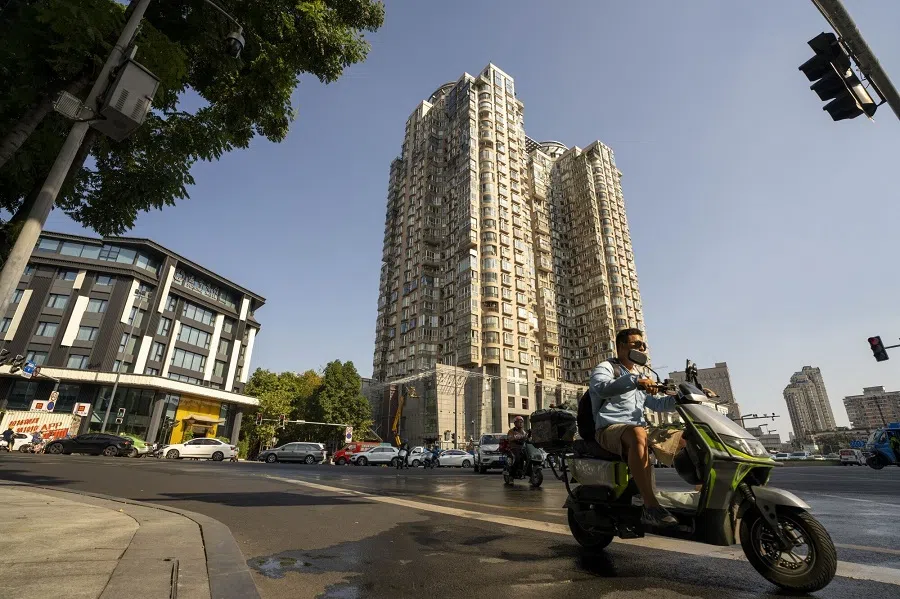
No country outside China can match the CCP’s ability to organise a large-scale, coordinated social transformation. This transformation would not unfold through violent revolution, but rather, follows a path similar to what Silicon Valley’s tech entrepreneurs are doing. This involves gradually integrating socialist elements into capitalism, addressing its shortcomings, and progressively achieving a full transformation.
In terms of the organisation and implementation of a Universal Basic Income (UBI), China enjoys a greater advantage since it has the most comprehensive industrial structure in the world. Mature and fully automated companies (especially monopolies) can be taken over by the state to become “state-run”, whereupon the purpose of their production can be changed from profit-seeking to serving the interests of the people and the country. They can become the sources of UBI.
Once basic financial security is ensured through UBI, people will be free to unleash their innovative and creative potential without the worry of earning a living, thereby fostering “mass entrepreneurship and innovation”.
A new way of living
After significantly simplifying and reducing the roles of the market and government, the economy and society will return to a more fundamental state. In the future, most people will not have employment in the traditional sense, but they will still need a purpose in life with things to do — the maker culture movement and online mutual aid and cooperation communities are a possible way out for them.
There is much good in this since it means replacing involution with idyll. The government’s role then is only to provide hard and soft infrastructure services.
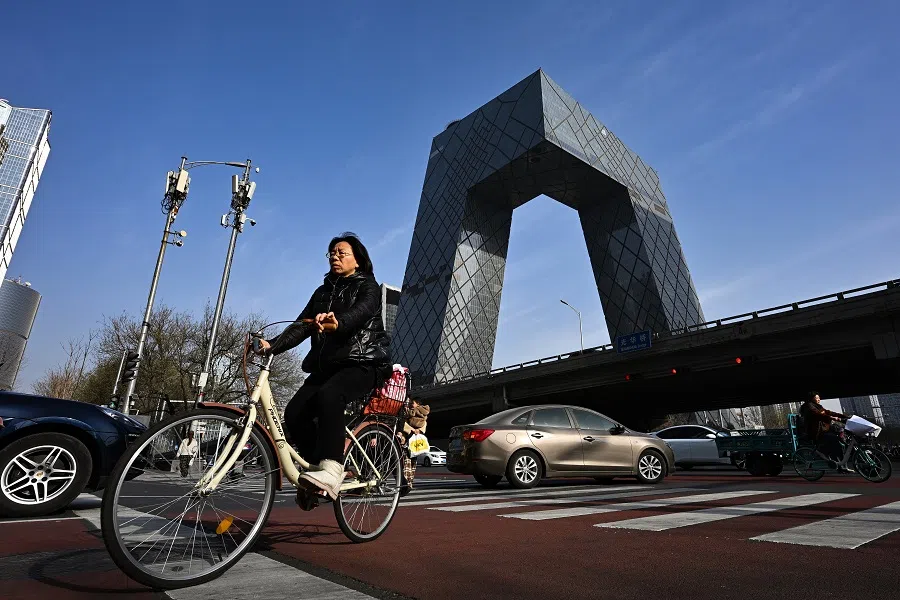
Rural China has an abundance of unused land and properties that could be utilised to create numerous self-sufficient, self-reliant and self-managed communities. These communities would allow city dwellers to reconnect with nature and engage in meaningful productive and social activities, such as implementing community currencies, labour exchanges, and neighbourhood mutual aid.
There is much good in this since it means replacing involution with idyll. The government’s role then is only to provide hard and soft infrastructure services.
To fully leverage China’s advantages, there must first be a liberation of thought and a clear understanding of the right path forward. The CCP has defined the basic socialist economic system as “a socialist market economy with diverse ownership forms, where public ownership is the mainstay, and multiple modes of distribution coexist, with distribution according to labour as the primary mode”. However, as the analysis above indicates, this understanding is inadequate.
The advent of the AI era should be looked upon with a sense of crisis. Preparations should be made for what is to come. China, as a socialist country, is probably more capable of dealing with the drastic change, but it should not get stuck in capitalist or old socialist thinking and thereby miss the golden opportunity unseen in 10,000 years.
This article was first published in Lianhe Zaobao as “中共政治局首提“内卷”背后 (下)”.

![[Big read] Paying for pleasure: Chinese women indulge in handsome male hosts](https://cassette.sphdigital.com.sg/image/thinkchina/c2cf352c4d2ed7e9531e3525a2bd965a52dc4e85ccc026bc16515baab02389ab)

![[Big read] How UOB’s Wee Ee Cheong masters the long game](https://cassette.sphdigital.com.sg/image/thinkchina/1da0b19a41e4358790304b9f3e83f9596de84096a490ca05b36f58134ae9e8f1)

